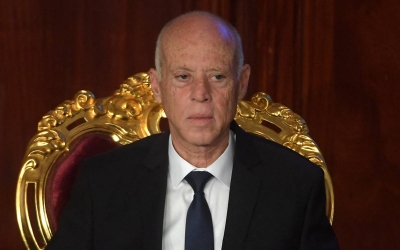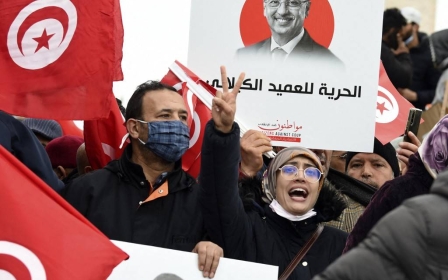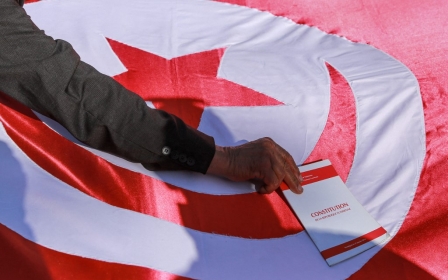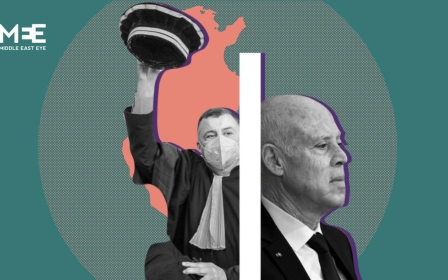Tunisia's Saied warns lawmakers against holding sessions of suspended parliament
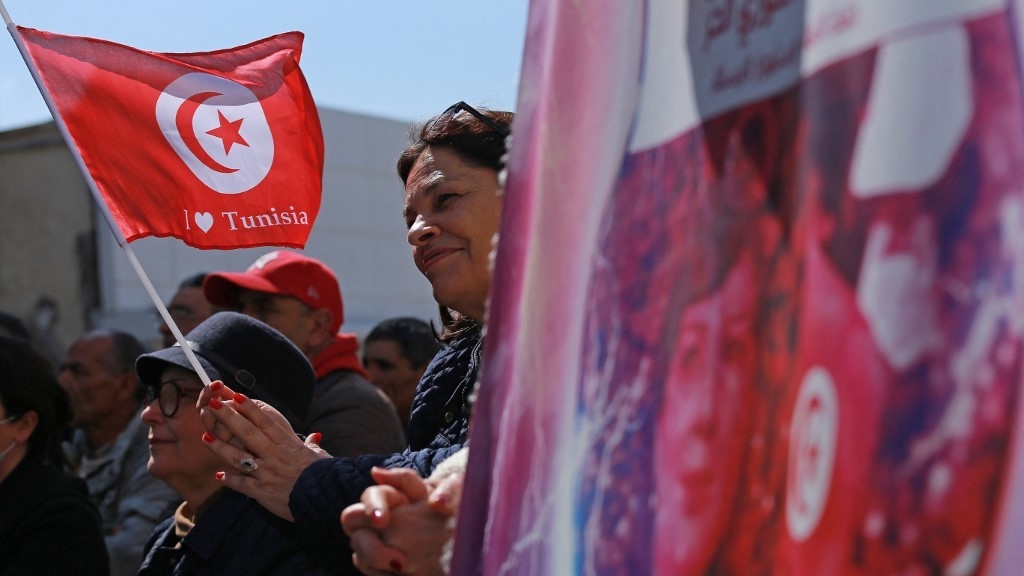
Tunisia's president warned late on Monday against attempts to hold sessions of the suspended parliament, saying forces and institutions will confront those who want to push Tunisians to fight.
Speaker Rached Ghannouchi said earlier on Monday that parliament will hold two full sessions this week to consider revoking President Kais Saied's moves towards a new constitution and one-man rule.
The sessions will take place on Wednesday and Saturday, the office of the Assembly of the People's Representatives said after a meeting held on Monday.
"[The office] decided to hold a general session on Wednesday to examine revoking [Saied's] exceptional measures and another on Saturday devoted to the dangerous financial and socio-economic situation," it said.
The assembly's office did not specify whether the sessions will take place in parliament, which has been closed since Saied's power grab last year, or online.
Saied dismissed the Monday meeting as "illegal" and said the state is not a puppet, calling the attempts to reconvene parliament "desperate".
"Tunisia has the sovereignty of the state abroad, and the sovereignty of the people within its borders," the former constitutional law professor said during a recorded national security meeting published by the Tunisia presidency's Facebook page.
"Whoever wants to tamper with it or reach internal fighting, there are forces and institutions that will deter them from their goals," he added.
Concerns for democratic path
The United States voiced its concern on Monday about the democratic path in the country and urged authorities to respect freedom of expression and halt civilian military trials.
In a statement following a visit to Tunisia, Uzra Zeya, US under-secretary for civilian security, democracy and human rights, stressed the importance of implementing an inclusive political and economic reform process, in coordination with political parties, unions and civil society.
Saied dismissed the government, suspended parliament and granted himself executive powers in July as part of a power grab, widely condemned as a coup.
Since then, he has announced that he will be ruling by decree and extended his powers over the judiciary.
Rights groups have warned that the country's nascent and fragile democracy was slipping towards autocracy under his rule.
Middle East Eye delivers independent and unrivalled coverage and analysis of the Middle East, North Africa and beyond. To learn more about republishing this content and the associated fees, please fill out this form. More about MEE can be found here.


